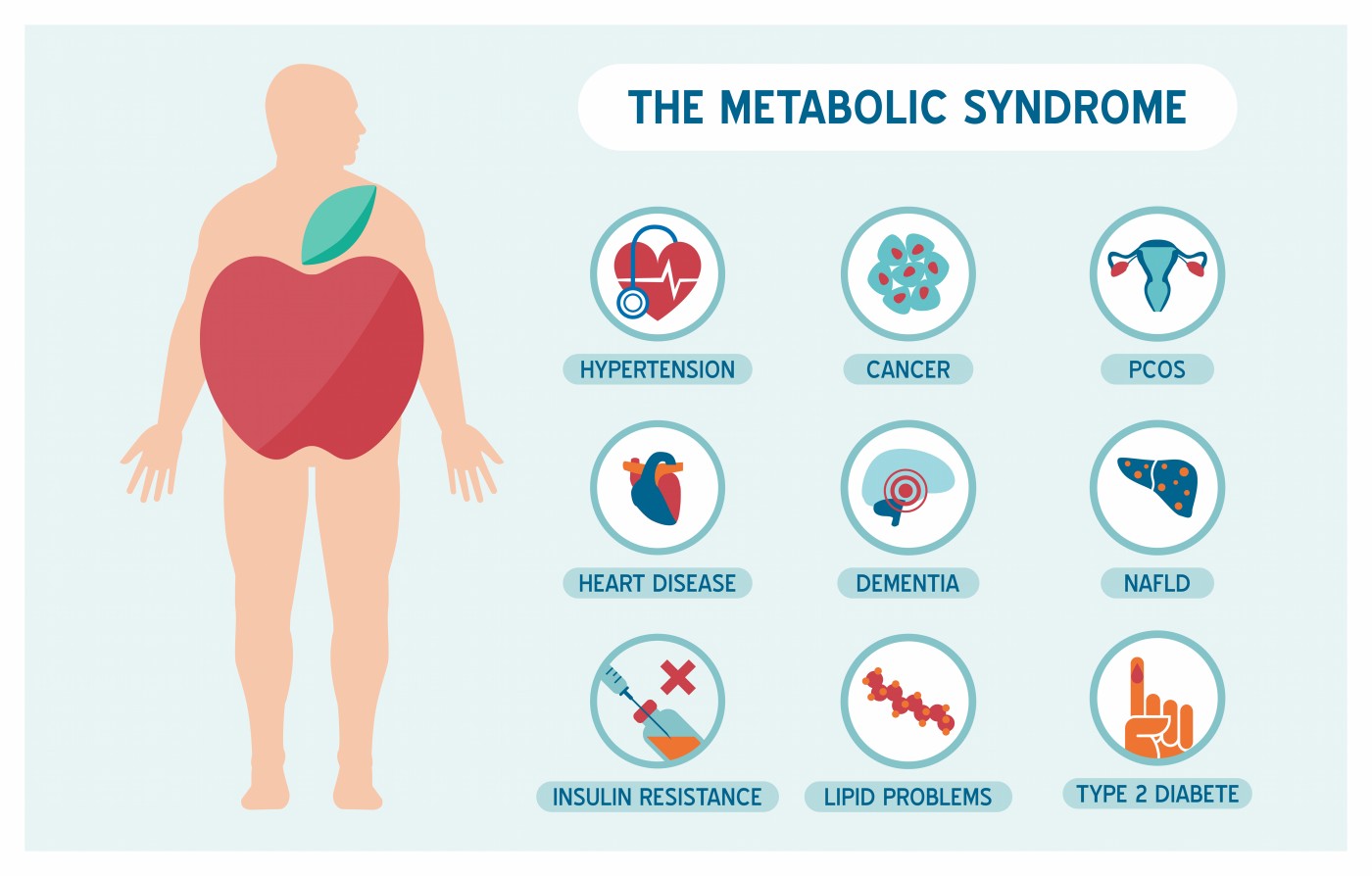In an article published in the BJU International journal, entitled “The prevalence of metabolic syndrome and its components amongst men with and without clinical benign prostatic hyperplasia: a large, cross-sectional, UK epidemiological study“, researchers from several UK hospitals and universities explored the association between metabolic syndrome and benign prostate hyperplasia (BPH).
Metabolic syndrome is related to several cardiovascular risk factors and is one of the most frequent syndromes affecting about one quarter of all adults globally. The condition is characterized by a clustering of at least three to five of the following medical conditions: abdominal (central) obesity, elevated blood pressure (or taking medications to treat it), elevated fasting plasma glucose (or diabetes mellitus), high serum triglycerides, and low high-density lipoprotein (HDL; i.e. good cholesterol) levels.
Using a large database of primary (general) practice developed to study the real world implications of diseases and treatments, the UK Clinical Practice Research Database, researchers found men with BPH and/or metabolic syndrome and explored the link between these two diseases. The team lead by Dr. Julia R. DiBello observed that patients with BPH had an increased 37% of odds of developing metabolic syndrome. This relationship was maintained even after adjusting for other individual characteristics. As a result, the association between BPH and metabolic syndrome was established with little doubt.
Some hypotheses that explain this association have been proposed by the researchers and also by previous studies. Most theories involve either the higher activity of insulin (related to pre-diabetes of the metabolic syndrome) and/or heightened inflammatory responses leading to prostate enlargement.
This knowledge is important to physicians as it empowers them to make an holistic approach to men with any of these conditions who are at an increased risk of having the other, in an attempt to make earlier diagnosis and treatment possible. This is specially important in the case of metabolic syndrome as an adequate treatment lowers the risk of serious cardiovascular complications such as heart attacks, stroke and even death.

